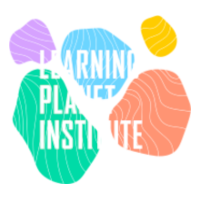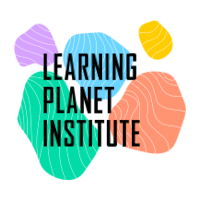Punk-haired children testing vibrating vests made from inner tubes? You’re not dreaming—this scene really did take place last week. During Hellfest, a team of students from the Learning Planet Institute tested prototypes developed as part of the project « À portée de scène », which aims to make festivals more accessible. This initiative was born at the MakerLab, the same creative hub that also launched the « FORVIA Disability Hackathon » just a week earlier. Meet the creators behind an emerging culture of accessibility, made by the Learning Planet Institute.
The MakerLab: A Cradle for Inclusive Innovation
The idea to create a FabLab at the Learning Planet Institute first emerged in 2012. “Originally, the FabLab was designed as an interdisciplinary space where anyone could explore the possibilities of creation and fabrication using digital tools,” explains Kevin Lhoste, researcher, lecturer, and head of the MakerLab—the Institute’s very own FabLab.
“Today, Learning Planet Institute students use the MakerLab as part of their academic modules. Others, such as participants in the Summer School, also come to work here,” he adds. The MakerLab follows a pragmatic educational model, blending frugal innovation—meeting needs simply and with minimal resources—with a hacker mindset: resourceful, curious, and hands-on. “Many fields feel out of reach for young people, but here we build tools that enable them to explore a wide range of projects. Technologies such as artificial intelligence and Arduino (an open-source prototyping platform) are examples of low-cost tools we use.”

Accessibility: A Core Focus for the Learning Planet Institute
From its inception, the MakerLab has aligned its work with the United Nations Sustainable Development Goals (SDGs). Accessibility sits at the heart of the Institute’s core values of diversity and inclusion.
“Accessibility is a particularly compelling theme, because it’s easy to identify concrete challenges and solutions that can genuinely support people with disabilities,” says Kevin. “It also gives students first-hand exposure to the realities of living with a disability.” Mentors with disabilities—including Yousra, a wheelchair user, and Diego, who uses a prosthetic hand—visit the students to share their day-to-day experiences. Inspired by a conversation with Diego, one student team designed a 3D-printed device that helps him tie his shoes independently.
In 2025, two major new initiatives were launched at the MakerLab: « À portée de scène », which focuses on making music festivals more accessible, and the « FORVIA Disability Hackathon », which explores everyday solutions for people living with disabilities.
« À portée de scène »: Making Festivals Accessible
Launched in January with the essential support of the Fondation Malakoff Humanis, which has been working for eight years to make cultural spaces more inclusive, « À portée de scène » channels student creativity and innovation into real-world accessibility solutions. “There’s a real coordination challenge here,” explains project lead Étienne Karlen. “We’re bringing together young people, foundations, universities, partners, festivals, disability experts, people with lived experience, and committed businesses*. These groups don’t usually collaborate, which makes it all the more enriching.”
“The project was structured in four phases,” Étienne continues. “First, a review of current practices; then, a festival identifies a specific challenge (what’s already been done and what remains). This challenge is assigned to a participating school and turned into a concrete problem, for which a range of solutions can be developed.”
In March, a one-week hackathon was held with students from the AIRE Master programme. The most promising projects were prototyped by the MakerLab team and tested at Hellfest festival in June. Three prototypes were trialled:
- A sensory rest area with custom seating, tactile objects, and a compression chair (which mimics the calming pressure of a hug, pre-tested by two autistic youths from IME Cour de Venise);
- A wheelchair periscope with a screen and augmented reality glasses, tested ahead of the festival by Pierre Laurian, President of Fondation Dux;
- Vibrating vests, made from balloon inner tubes, that allow users to feel the music through their bodies.

The project also extended to other festivals: Eurockéennes de Belfort, Jazz à Vienne, and Jazz in Marciac, in collaboration with the Pôle Leonard de Vinci. During their annual hackathon, around 160 out of 1,300 first-year students developed gamified awareness-raising projects. Fifty students from IIM Digital School later worked on digital prototypes as part of a semester-long assignment. Meanwhile, students from Condé developed accessible and sustainable signage for the We Love Green festival, which they presented to the organising team.
Project evaluations were carried out by a panel that included accessibility experts (such as Denis Leroy, President of Régie Access, and IME Cour de Venise), teaching staff from Fondation AD Education’s partner schools, and members of Fondation AD Education. The feedback was highly promising and suggests a bright future for « À portée de scène ».
Experience-sharing sessions scheduled for September will assess the impact of the tools developed and explore how they might be scaled up.
The FORVIA Disability Hackathon: Everyday Innovation

Another major accessibility project came to life in 2025, led by project manager Jade Borsoi. The FORVIA Foundation wanted to involve its employees in disability-related initiatives and give them an opportunity to apply their expertise to this universal cause. The MakerLab’s approach—frugal innovation, collaborative work, and tangible responses to real challenges—aligned perfectly with FORVIA’s values, resulting in the creation of the FORVIA Disability Hackathon.
Thirty FORVIA employees, with expertise ranging from quality assurance and HR to R&D and IT, collaborated on three challenges proposed by beneficiaries, supported by ten MakerLab mentors, including students from the Learning Planet Institute. The selected challenges were:
- The design of an accessible leisure device for an 8-year-old girl with bifrontal polymicrogyria (daughter of a FORVIA employee);
- The creation of a wheelchair-compatible reverse camera system;
- The development of a voice-controlled remote for the hospital bed of Edouard, a quadriplegic man and friend of one of the employees.
“The participants were extremely engaged. They appreciated the venue, the methodology, the mentorship, and the opportunity to connect with colleagues from across the company,” says Kevin Lhoste. “The project holders were especially moved by the collective effort made to improve their daily lives.” The prototypes are now being finalised and will soon be available to the beneficiaries. Public trials will be shared via an online platform and relevant expert networks—some potential users are already showing strong interest in the reverse radar.
Whether in festivals, workplaces, or homes, the MakerLab’s projects are clearly contributing to a more accessible world for people with disabilities. “We are now looking to build a sustainable hackathon model that can be scaled up and mobilise people on a larger scale,” says Étienne Karlen with optimism.
Learn more
👉 *Projects partners:
- « À portée de scène », in partnership with Fondation Malakoff Humanis Handicap, Fondation AD Education, higher education institutions (Condé, Pôle Léonard de Vinci), disability experts (Entreprendre pour Aider, Régie Access, IME Cour de Venise, CAP SAAA, CNCPH, Fonds de dotation Kerpape, Fondation Saint-Pierre), festivals (Hellfest, Jazz à Vienne, Jazz in Marciac, Les Eurockéennes de Belfort, We Love Green), and committed companies (Les Entreprises pour la Cité, Admical)
- « Disability hackathon FORVIA », in partnership with the FORVIA Foundation.
👉 Company, foundation, university or festival:
- Get in touch to join the movement, bring your accessibility challenges, the expertise of your team, or the energy of your students… for a more accessible world!
- Become a patron of one of our committed projects.
An article written by Marie Ollivier
Thanks to Kevin Lhoste and Étienne Karlen for answering our questions.






